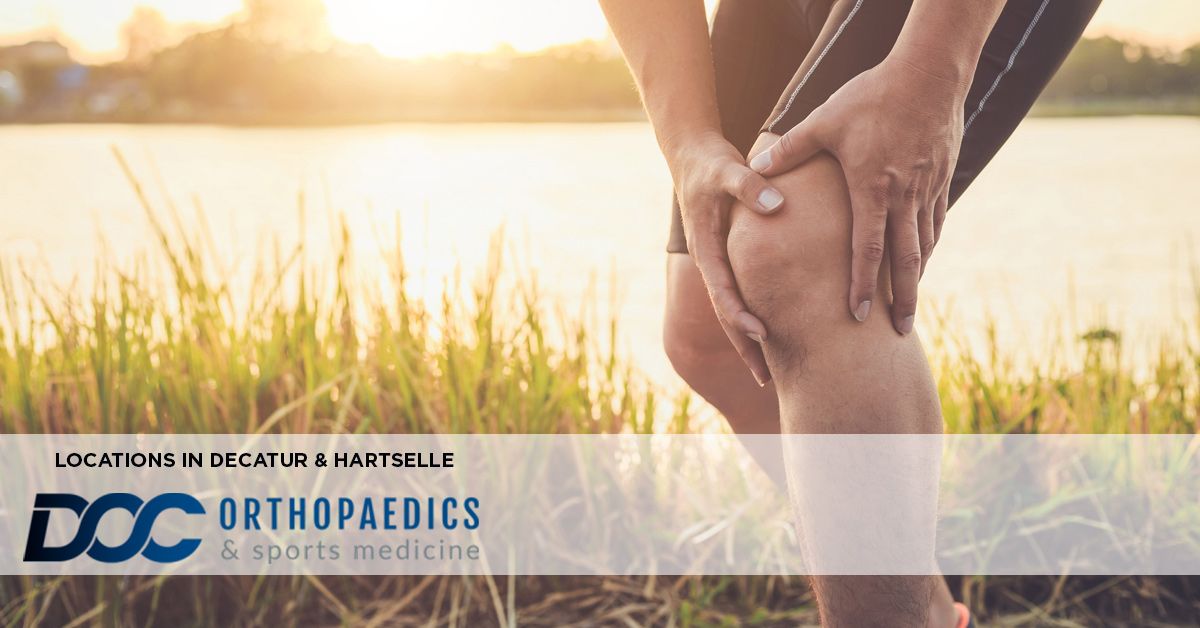
Knee Arthroscopy 101
Knee Arthroscopy 101
If you enjoy an active lifestyle, the odds are good that your knees play a central role… both good and bad. When your knees feel good, you’re confident in running, hiking, playing tennis, or simply climbing steps. But when your knees become a source of pain or weakness, these large joints can impact your entire outlook on physical activity. That’s when a conversation with your doctor about knee arthroscopy can be valuable.
What is knee arthroscopy?
An orthopaedic specialist like Dr. Randy Riehl at DOC Orthopaedics and Sports Medicine can use knee arthroscopy to diagnose and treat a wide range of knee injuries using a tiny camera inserted through a small incision in your knee. The camera shows the inside of your knee, and the images it picks up appear on a screen in the operating room. They help your healthcare provider diagnose problems inside of your knee.
Knee arthroscopy is a very common minimally invasive surgical procedure. Minimally invasive procedures require smaller incisions (cuts) than traditional surgery. The incisions are about the size of a keyhole and allow the doctor to insert tiny tools to remove or repair damaged tissue.
Who benefits from knee arthroscopy?
Your doctor may recommend knee arthroscopy if you have knee pain that doesn’t get better with nonsurgical treatments such as rest, ice, nonsteroidal anti-inflammatory drugs, and physical therapy (PT). Arthroscopy provides a better look at cartilage, bones, and soft tissues inside of your knee to help diagnose – and sometimes treat – several types of knee injuries that most frequently affect ligaments and cartilage in your knee joint.
How is the knee arthroscopy used?
Your doctor may use knee arthroscopy to:
Diagnose injuries by using the camera to view images of damaged soft tissues and bones. The images help diagnose injuries (or confirm a diagnosis) and plan treatment
Repair tendons, ligaments or cartilage using tiny tools to stitch or suture them together
Remove damaged bone and cartilage or inflamed tissue (such as the synovium)
What are the advantages of knee arthroscopy?
Minimally invasive procedures like knee arthroscopy usually require less recovery time than traditional or open surgery. You will likely require only a few small stitches, so you’re more likely to get back on your feet more quickly than with traditional surgery. You may also have less pain and a lower risk of infection.
What are the risks or complications of knee arthroscopy?
Complications from knee arthroscopy are rare. As with any surgery, the risks of knee arthroscopy include bleeding and infection. After the procedure, some people experience:
Blood clots
Knee stiffness
Swelling from blood pooling in the knee (this complication is uncommon)
How long is the recovery process after knee arthroscopy?
Everyone responds to surgery differently, so your doctor will help determine when you can get back to your daily activities, including driving and walking without assistance. You may be advised to wait several weeks before doing more physical or strenuous activities.
You’ll also want to rely on your doctor’s advice about choosing lower-impact sports and activities that are easier on your knee to prevent future injury/issues.
When is it time to talk to a doctor?
If you’re experiencing routine knee pain, it’s important to visit an orthopaedic specialist who can help determine the cause of your pain and begin conservative treatment as quickly as possible. As one of the specialists at DOC Orthopaedics and Sports Medicine, Dr. Riehl specializes in knee pain as well as sports medicine, hip and shoulder pain, joint replacement, and hand surgery. He completed his orthopaedic residency at the internationally renowned Campbell Clinic in Memphis, Tenn. and is currently vice president of the National Clinical Orthopaedic Society. He has board certifications in both orthopaedic surgery and sports medicine.
Since 1972, the specialists at DOC Orthopaedics and Sports Medicine have been committed to providing exceptional orthopaedic care through innovative techniques, quality services, patient communication, and education. With specialties ranging from general orthopaedics and physical therapy to sports medicine, joint replacement and more, the doctors at DOC Orthopaedics and Sports Medicine can provide local expert care for any orthopaedic disorder or injury and help put your life back in motion.

